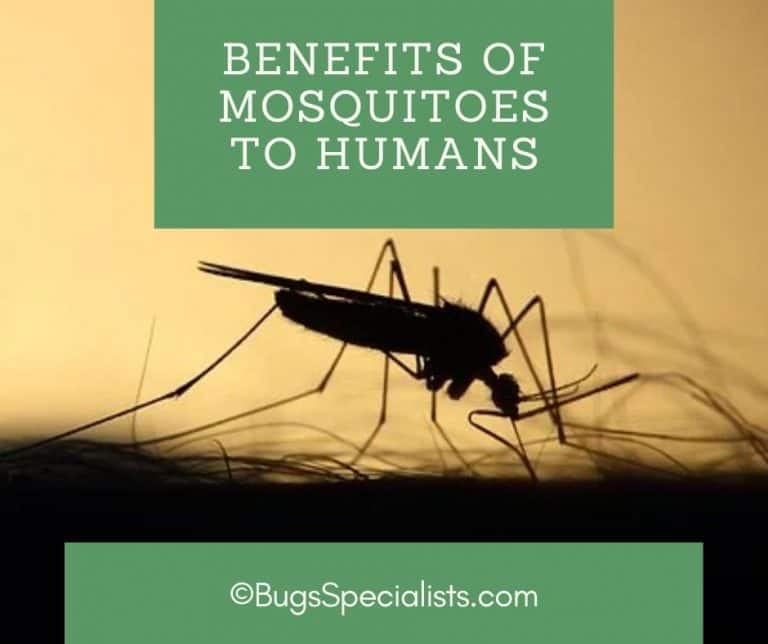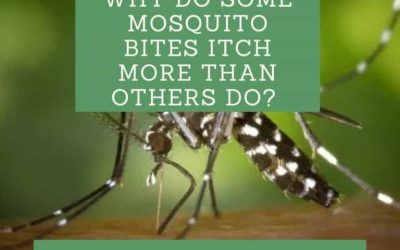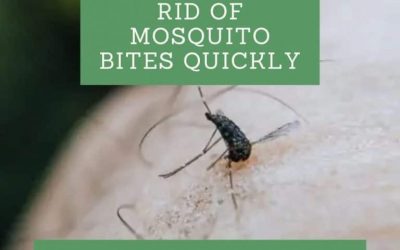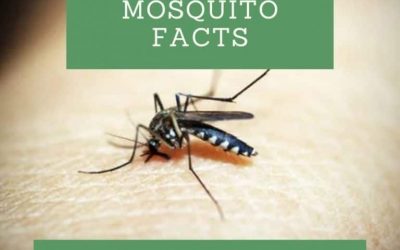The presence of bugs in the hot season means you’ll hear the constant buzzing and biting sound of mosquitoes more times than you can count. Even worse is that you get countless bites as they try to feed on you before slowing down into the falls.
Sure, bugs aren’t hard to repel. And the best way to keep them away is to ensure they don’t get to you in the first place by creating a mosquito proof environment for yourself. From bug spray and lotions to lifestyle changes and home remedies, there are ways to repel these suckers and cure their bites.
But exactly why do some mosquito bites’ itch more than others in the first place?
Why Do Some Mosquito Bites Itch More than Others Do?
There are a few possible explanations for why some mosquito bites itch more than others do.
Mosquito bites tend to be more intense on body parts that have more nerve endings. For example, mosquito bites on your fingers can cause more itchiness than mosquito bites on your arms.
Your body’s immune system will react differently to mosquito’s saliva proteins depending on your age, how you sleep, and how healthy you’re.
The intensity of a mosquito’s itchiness also depends on the species that bites you. In this case, it’s important to understand that there’s a genetic difference between different mosquito species. Given the variation, mosquitos tend to have different biochemical compositions of anticoagulant injected into a host when they bite. Given the differences in the anticoagulant molecules, your body will induce varying immune reactions to the foreign proteins.
One last possible explanation why mosquito bites itch more is the frequency at which they strike you on the same body part. If a mosquito bites you just once, the itchiness won’t hurt as bad as when the same mosquito strikes you multiple times. Each time a mosquito attacks, it leaves foreign protein saliva, which triggers more immune response and therefore more itching.
Related reading Mosquito Facts
Why Do Mosquito Bites Itch?
To understand why mosquito bites itch, it’s important to know how your body’s immune system reacts to the bites in the first place.
A mosquito does two things when it bites: inject their saliva and draw blood. The saliva contains proteins and a biochemical composition of anticoagulant, which your body detects as foreign substances. This awakens your immune system, which then releases a compound called histamine, which goes to the bitten area of the skin.
As important as histamine is in triggering a response against mosquito bites, it’s also the chemical compound that causes inflammation, itchiness, and swelling.
Why Do Mosquitoes Bites Itch More At Night?
Nighttime is the moment you just want to sit in a sofa, watch your favorite TV shows and then go to bed to catch some sleep. It’s also the time when a mosquito bite tends to itch more. As strange as that may be, there’s a simple and very reasonable explanation.
It’s at night when you don’t have many things to attend to, unless you work a night shift. That means you don’t have a lot occupying your mind. Therefore, you’re more likely to notice mosquito bites being more bothersome when you sleep than when you’re awake and busy with your daily activities.
Related reading How to Prevent Mosquito Bites While Sleeping at Home
Why Do Mosquito Bites Itch More When You Scratch Them?
The worst thing you can do when you get a mosquito bite is to scratch the bitten area. Scratching the bite causes skin inflammation, followed by another harsh wave of itchiness, this time more severe than the first.
You just don’t get into a cycle of an itchy sensation. You also risk breaking your skin, which might possibly lead to an infection.
Sure, mosquito bites are painful, but rubbing the area they bite won’t ease their biting effect. Luckily, there are safe ways to manage mosquito bites.
Related reading How to Get Rid of Mosquito Bites Quickly
FAQ
How long does a mosquito live after biting someone?
The assumption that mosquitoes die immediately after biting their host isn’t correct. It can live between 21 and 30 days after sucking blood from a host, and lay between 50 and 300 eggs within that time.
It means that during the time she’s alive, the female mosquito is constantly breeding. And while she’ll die anyway, her lifecycle will continue.
How long do mosquitoes’ bites itch?
The itching caused by a mosquito bite can go away on its own within 3 to 4 days. If the itchiness caused the affected are to swell, it’ll take up to 7 days for the swelling to go away.
For most people 7 days is a very long time to wait. That’s why it’s important to look for effective remedies that can ease mosquito bites in the shortest time possible.
Why do some mosquito bites swell more than others?
Some mosquito bites tend to swell because the victim has a more sensitive skin or they’re allergic to the saliva protein produced by the mosquitoes.
Take babies, for example. Their skin is quite young, sensitive, and very delicate. When the female mosquitoes bite them in an attempt to suck blood, they’ll experience more swelling and red reactions.
Some bites tend to swell because the host scratched them.
What can I do now that mosquitoes have bitten my skin?
Many people tend to scratch their skin when they get mosquito bites, but that can turn out into a traumatizing experience. The best cause of action isn’t to attack your skin even further. Instead, you should use the safest remedy to get rid of the bites.
Examples of remedies that you can use to control mosquito bites include baking soda, crushed ice, vinegar, oatmeal, and lemon balm. You can also apply lotions that repel mosquitoes to protect yourself from mosquito bites when you’re outside.
Related reading Research









